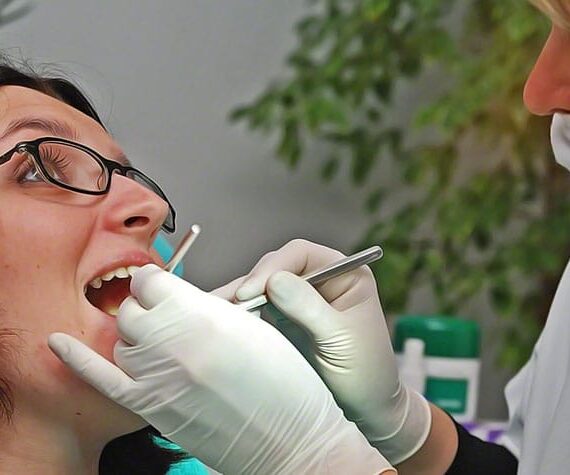There are many things that the human body can subconsciously do while sleeping. One of them is talking. Why does it happen? Is it a severe situation? Do you need to see a sleep specialist Urbana? Here is what to know.
What Is Sleep Talking?
Sleep talking, also known as somniloquy, is a phenomenon in which you mumble and even speak coherently while sleeping. It is characterized as a sleeping disorder, although there’s no such harm that comes from it.
Somniloquy can be a symptom of other sleeping disorders or it can occur on its own. There are a lot of factors that can contribute to sleep talking, but it can also be something that can occur without a definite cause.
Vivid dreams and even difficulty in sleeping can cause you to mumble incoherently during your sleep. This is common and almost everyone has, at one point or another, had one episode in which they have said something in their sleep.
Sleep talking is also characterized as a type of parasomnia. Parasomnia is a condition in which you do abnormal stuff while sleeping. This can include:
- Talking
- Having night terrors
- Thrashing around
- Stopping of breathing
- Walking
- Rapid eye movement and the list goes on
Somniloquy can occur either once in a blue moon or it can be frequent. Since you’re the one sleeping for the most part, your sleeping partner will tend to experience you talking in your sleep. They can let you know what you were doing the night before. Chances are that you don’t remember anything, which is completely normal.
Why Do We Talk During Sleep?
Like many sleep disorders, the cause of sleep talking is still unknown. It may have something to do with genetics and it usually affects children more than adults. Children are said to be more vocally active during their sleep than adults and as they grow up, it tends to go away on its own.
Other things that can cause sleep talking can include:
- An erratic sleeping schedule
- Post Traumatic Stress Disorder (PTSD)
- Stress
- Anxiety
- Depression
- Night terrors
- Bad dreams
- Insomnia
- Sleep apnea
- Sleep paralysis, etc.
Different studies show that almost 66% of people experience sleep talking, however, very few report them because they don’t even know that it’s happening.
It can be frustrating to not know what exactly causes sleep talking, but it may have to do with hyperactivity during sleep. If you’re someone who is addicted to caffeine and you consume it before bed, in the form of either tea, coffee, or energy drinks, then there’s a high chance that you will not only remain awake for longer, but your brain will register the dreams you’re having, and you might even end up mumbling the words at one point.
The brain works in mysterious ways, especially during the REM stage of sleep. Your dreams can look very real and somniloquy can occur during this stage mostly.
Another very common believable cause of sleep talking is substance and alcohol abuse. You might even be taking certain medications that can alter your sleep cycle and cause parasomnia to occur, which in turn, can lead to things like sleepwalking and even talking. Alcohol and other drugs can stimulate the brain, much like caffeine and the effects can show while you’re sleeping. You might even hallucinate in your dreams, and it can ultimately cause somniloquy.
Is Sleep Talking Dangerous?
If you think that sleep talking is dangerous, then you’ll be happy to know that it’s not at all. In comparison, sleepwalking is deemed more dangerous than sleep talking, because you don’t know where you’re walking to, and you can accidentally bump into things or trip and fall.
If anything, sleep talking can just disrupt the sleep of the person next to you. They might wake with a start, finding you talking, but other than that, there is no apparent harm that sleep talking can cause.
It can be an uncomfortable experience, especially if you’re someone who gets scared easily, but that’s pretty much it. The talking in somniloquy is also not as coherent either. It can only be the slight moving of the lips, or it can be mumbling that people don’t even understand for the most part.
In some cases, you might even slur things from the past, and other times, the talk makes no sense at all.
Granted, there can be times when you wake up while talking and it can disrupt your sleeping schedule, so that’s the only thing that people can get frustrated by, but as a “disorder”, somniloquy is harmless, through and through.
Symptoms Of Sleep Talking
Now that you know why people talk during their sleep and whether it’s dangerous or not, here are some symptoms of somniloquy.
- The most obvious one is talking. You might be talking to yourself or another person, but it will be incomprehensible at the best of times.
- You might wake up soon after and feel confused.
- You won’t even remember the conversation you had while you were asleep. This is common and if someone asks you what you were talking about, you can be confused.
- You can even talk with your eyes open, but you’ll close them afterward and slip into a peaceful sleep. When you finally wake up, you won’t remember anything.
- There might or might not be limb movement while you’re talking. This varies from person to person.
- You might also snore and groan in your sleep.
- Sometimes, the dreams can be realistic and you can reenact the scenarios being created in your head. You’ll also say the same words as in the dream.
The talking can also be related to the past or even things that you want to do.
Does Sleep Talking Ever Stop?
Since there is no definite cause of sleep talking, it’s really hard to pinpoint the exact treatment or prevention methods to stop it, because as harmless as it is, it can be an awkward experience for you and your sleeping partner. Sleep talking does go away on its own, however it does take time.
Here are some things you can try to prevent talking in your sleep.
Follow A Sleep Schedule
Maintaining a set sleep schedule can help your body relax and not think about things. This will lead to a conversation-less sleep and both you and your sleeping partner won’t be startled to hear you talking.
Limit The Use Of Caffeine And Other Related Things
Try to limit the intake of caffeine and other stimulants that can will your brain to stay awake. That’s not good for your sleeping schedule at all.
Limit The Use OF Electronic Devices Before Bed
Avoid the exposure of blue light from your phone and electronics for a good 2 to 3 hours before you go to sleep. The goal is to relax the brain and body as much as possible and have a good night’s rest without any interruptions.
Use A Comfortable Mattress And Pillow
Invest in a good mattress and pillow because sometimes an uncomfortable position while sleeping can lead to somniloquy.
Conclusion
Sleep talking is pretty common to occur in people and almost everyone has once talked in their sleep. How interesting is that? If you’re experiencing a parasomnia that is affecting your lifestyle, visit a sleep clinic Silver Spring.



